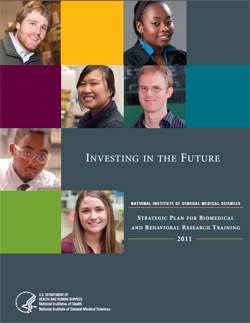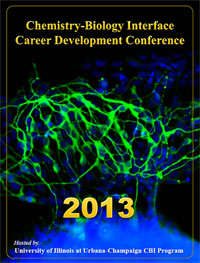You may be interested in these recent funding opportunity announcements (FOAs):
Bridges to Baccalaureate Program (R25)
(PAR-13-333)
Purpose: Promote partnerships/consortia between community colleges or other 2-year post-secondary educational institutions granting the associate degree and colleges or universities that offer the baccalaureate degree, with the goal of increasing the pool of community college students from underrepresented backgrounds who pursue research careers in the biomedical and behavioral sciences and who will be available to participate in NIH-funded research
Application due dates: October 18, 2013; September 25, 2014; September 25, 2015
NIGMS contact: Michelle R.J. Hamlet, 301-594-3900
NIH Director’s Pioneer Award Program (DP1)
(RFA-RM-13-006)
Purpose: Support exceptionally creative individual scientists at any career stage who propose pioneering, and possibly transforming, approaches to major challenges that have the potential for unusually high impact on a broad area of biomedical or behavioral research
Application due dates: October 18, 2013; October 10, 2014; October 9, 2015
NIH contact: Ravi Basavappa, 301-435-7204
NIH Director’s New Innovator Award Program (DP2)
(RFA-RM-13-007)
Purpose: Support exceptionally creative early stage investigators who propose bold and highly innovative new research approaches that have the potential for major impact on broad, important problems in biomedical and behavioral research
Application due dates: October 25, 2013; October, 17, 2014; October 16, 2015
NIH contact: Ravi Basavappa, 301-435-7204
Limited Pilot for NIGMS Legacy Community-Wide Scientific Resources (R24)
(PAR-13-324)
Purpose: Maintain existing NIGMS research resources that demonstrate a high value to a community of NIGMS-supported researchers and that are no longer eligible for support under their original initiatives
Letter of intent due date: 30 days before the application due date
Application due dates: October 15, 2013; October 15, 2014; October 15, 2015
NIGMS contact: Mary Ann Wu, 301-435-0787
Research Centers in Injury and Peri-Operative Sciences (P50)
(PAR-13-291)
Purpose: Improve understanding at all levels of the biological processes invoked after traumatic or burn injury, or in critically ill patients, including pertinent aspects of wound healing; and foster translational research, bringing basic scientific observations and principles into the clinical arena and using clinical observations to generate or validate mechanistic hypotheses
Letter of intent due date: 6 weeks before the standard due date
Application due date: Standard dates apply
NIGMS contact: Scott Somers, 301-594-3827


 Clifton “Clif” Poodry, Ph.D., director of the NIGMS Division of Training, Workforce Development, and Diversity, retired earlier this month. Although he’s left federal service, Clif is continuing to pursue his long-held interest in improving science education as a senior fellow at the Howard Hughes Medical Institute.
Clifton “Clif” Poodry, Ph.D., director of the NIGMS Division of Training, Workforce Development, and Diversity, retired earlier this month. Although he’s left federal service, Clif is continuing to pursue his long-held interest in improving science education as a senior fellow at the Howard Hughes Medical Institute. Many of the themes in our strategic plan for research training have been echoed by the Biomedical Workforce Working Group of the Advisory Committee to the Director, NIH. Among these is the use of individual development plans (IDPs) to facilitate career development discussions and planning between mentees and mentors. I’m delighted to share some progress on this front.
Many of the themes in our strategic plan for research training have been echoed by the Biomedical Workforce Working Group of the Advisory Committee to the Director, NIH. Among these is the use of individual development plans (IDPs) to facilitate career development discussions and planning between mentees and mentors. I’m delighted to share some progress on this front. An action recommended in our strategic plan for biomedical and behavioral research training and by a working group of the Advisory Committee to the Director, NIH, is providing graduate students with a greater awareness of their career options. An inaugural career development conference that we co-sponsored and that was recently highlighted in a Chemical & Engineering News article may lead to the development of a sustainable workshop model to inform graduate students about and help them prepare for a range of scientific careers.
An action recommended in our strategic plan for biomedical and behavioral research training and by a working group of the Advisory Committee to the Director, NIH, is providing graduate students with a greater awareness of their career options. An inaugural career development conference that we co-sponsored and that was recently highlighted in a Chemical & Engineering News article may lead to the development of a sustainable workshop model to inform graduate students about and help them prepare for a range of scientific careers.